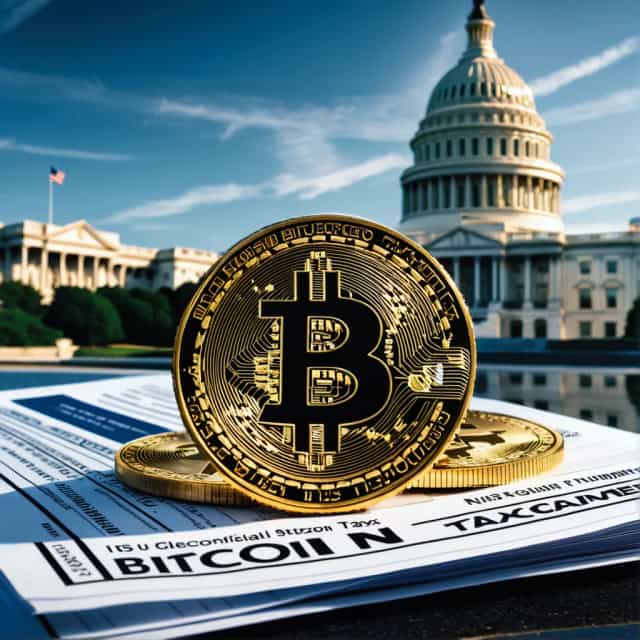
Image source: Block Media
The Evolution of Blockchain in Asset Tokenization and Securities Markets
The financial industry is undergoing a groundbreaking transformation with the adoption of blockchain-driven asset tokenization. This trend is reshaping traditional capital markets by digitizing assets like real estate, commodities, and intellectual property into tokens, creating entirely new systems for trading and investment. With Security Token Offerings (STOs) and fractional investment platforms gaining traction, the tokenization of assets is revolutionizing the accessibility, efficiency, and democratization of investment markets.
Tokenized Securities: A New Era of Investment
At the core of this transformation are tokenized securities, which utilize blockchain's decentralized ledger technology to enhance convenience, transparency, and stability in the trading of securities. By dividing high-value assets such as real estate, precious commodities, and intellectual property into fractionalized tokens, STOs are lowering investment barriers and enabling broader market participation. Analysts predict that tokenization will soon extend to more traditional financial assets like stocks and bonds, signaling a significant shift in the investment landscape.
Legislative Momentum Drives Tokenized Securities Forward
Regulatory frameworks are evolving to support the growing tokenized securities market. As of November 3, five legislative proposals designed to formalize and integrate tokenized securities are under review in South Korea's National Assembly. Two central amendments stand out in this regard. The first pertains to the Electronic Securities Act, which proposes enabling the issuance of securities using blockchain-based distributed ledgers. The second involves refining the Capital Markets Act to better define and streamline mechanisms for distributing investment contract securities.
Market stakeholders are closely watching the inclusion of stablecoin-related legislation, as it could standardized blockchain-based settlement infrastructure. If passed, this would position stablecoins as a legitimate mechanism for settling tokenized securities transactions, further widening blockchain integration into existing financial systems.
Strong Political Backing for Regulation Reform
The regulatory push enjoys broad political and institutional support, evidenced by tokenized securities being included among 123 national policy objectives and 12 core strategic initiatives by South Korea's current administration. The incoming chairman of the Financial Services Commission (FSC) has publicly committed to advancing legislative initiatives, which have so far been embraced by both ruling and opposition parties. Observers anticipate swift progress during the National Assembly’s November session, given the non-controversial nature of the proposals.
Nevertheless, there are lingering risks of delays. The packed parliamentary audit calendar has raised concerns about whether the review process might slow within the Political Affairs Committee. Historical examples from the 21st National Assembly underscore these uncertainties, as bipartisan agreements sometimes waned due to shifting priorities. That said, optimism remains strong, as policymakers and industry players count on legislation passing by year-end to underpin strategic advancements in the tokenized securities space.
Building the STO Ecosystem: Financial Institutions Lead the Charge
Financial institutions, securities firms, and fintech companies are forging ahead to lay the groundwork for security token ecosystems, even in the absence of finalized regulations. Companies like Daishin Securities have acquired fractional real estate investment platforms such as "Kasa," while Shinhan Investment & Securities is working with blockchain developers to establish token issuance capabilities. Other firms, including IBK Investment & Securities and fintech leader Toss, have filed trademarks for proprietary tokenized solutions like "Token Securities" and "Quick Token Pay," respectively, signaling their readiness for the digital shift.
Major securities firms are also focusing on building dedicated STO ecosystems. Efforts are aligned with future regulatory requirements that separate the issuance of tokens from their distribution to protect investors. These initiatives include forming partnerships with IT firms, developing consortiums, and enhancing operational infrastructure to support this burgeoning market. For example, Mirae Asset Securities has teamed up with Hana Financial Group and SK Telecom on their "Next Finance Initiative (NFI)." Similarly, Shinhan Investment's "PULSE" project and NH Investment's "STO Vision Group" underscore the sector's collective pivot toward blockchain integration. KB Securities, partnering with corporate collaborators, has introduced its "ST Owners" ecosystem.
Banks Enter the Tokenized Arena
South Korean banks are also taking active steps to position themselves within the growing STO ecosystem. NH NongHyup Bank has initiated efforts to issue tokenized securities to fund smart farming projects. Woori Bank is collaborating with Samsung Securities and SK Securities on a joint tokenization platform, while Shinhan Bank has partnered with Shinhan Investment & Securities to manage both issuance and distribution in the security token market. These financial institutions view tokenization not merely as a market evolution but as a key competitive frontier for the future.
Tokenization Possibilities Extend Beyond Securities
Experts believe this wave of innovation will inevitably expand beyond tokenized securities as regulatory clarity and blockchain adoption increase. "Once tokenized securities are granted legal status, on-chain data will carry enforceable validity, which will legally define ownership rights of tokenized assets," explained Hong Je-Seok, a researcher at Shinhan Investment & Securities. This development could open the door to tokenizing other financial instruments, such as debt securities and derivatives, further broadening the scope of tokenization across asset classes.
South Korea as a Tokenization Trailblazer
As South Korea builds out its legal, technological, and operational frameworks for STOs, the country is positioning itself as a global leader in blockchain-enabled financial markets. From regulatory advances to dynamic industry participation, stakeholders are shaping an ecosystem primed for transformation. Tokenization may be on the verge of redefining how assets are issued, traded, and owned, crafting a modern, blockchain-powered financial infrastructure poised to meet the challenges of the future.










